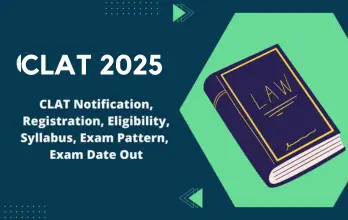
Strategic planning and adherence to recommended practices enhance candidates' chances of achieving top ranks in this competitive exam. Success in such a highly competitive exam goes beyond academic prowess and relies on factors like dedication, consistency, strategic planning, and meticulous execution.
Knowing what actions to take and what to avoid is crucial in the context of this examination. In light of this, we aims to provide a comprehensive list of do's and don'ts for CLAT 2026 preparation, designed to significantly enhance candidates' chances of excelling in the exam.
SECTION 1: DO’s
Therefore, let us explore some of the most significant dos for attaining success in the CLAT 2026 exam.
Focus on Mock Tests:
Engaging in regular mock tests offers numerous advantages. Strategically scheduling these tests helps gauge progress and identify areas for improvement. Familiarity with the exam pattern facilitates efficient strategies to handle various sections and question types.
Moreover, exposure to diverse question formats enhances analytical and problem-solving abilities, fostering a flexible mindset. Mock tests reveal strengths and weaknesses, enabling targeted learning and skill refinement. This self-discovery unlocks hidden potential, bolstering confidence for the actual exam.
However, merely taking a CLAT mock tests is insufficient; comprehensive analysis is vital. Delving into performance details reveals underlying reasons for errors and informs future improvements. Tracking progress over time allows for adjustments in study plans, ensuring focused efforts where most needed.
Analyzing mock tests maximizes their value and optimizes exam readiness. Remember that, The true value of mock tests lies not just in scoring high but in the lessons learned from every mistake. Each error serves as an opportunity for growth, as it contributes to your development as a wiser and more competent competitor.
As our faculty at LawEX rightly emphasizes, "Competitive exams are not won by luck alone but by the effort and hard work invested in mock tests, refining your skills to perfection.
By focusing on mock tests and utilizing them effectively, you can enhance your chances of success in the CLAT 2026 exam.
Revise Previous Year's Papers:
Disregarding the importance of these papers is not an option, as they provide invaluable resources for understanding exam requirements and gaining insights into the question framing mindset of the examiners.
In the vast sea of exam preparation, previous year question papers act as guiding lighthouses, illuminating the path towards success. They offer a wealth of knowledge, representing the blueprint of the exam and reflecting past patterns.
Engaging with these papers goes beyond seeking correct answers; it involves grasping underlying concepts and reasoning behind each solution. This deeper comprehension empowers candidates to apply their knowledge effectively to a variety of questions, even those that may appear unfamiliar or challenging.
Consistent practice with previous year papers not only refines time management skills but also enhances accuracy and develops effective exam-taking strategies.
The revision of previous year's question papers stands as an indispensable component of competitive exam preparation, offering crucial insights and shaping one's study plan. Embracing the wisdom encapsulated within these papers and using them as stepping stones toward success is paramount.
Practice Time Management:
In a competitive exam, every minute counts. Proper time management allows students to approach each step wisely and make the most of the allotted time. Without this skill, candidates may struggle to navigate through questions, hindering their productivity during the exam.
On the contrary, students adept at time management can strategically choose which questions to tackle and solve efficiently within the given timeframe, maintaining a high level of accuracy. Prioritizing easier questions before proceeding to more challenging ones enables students to optimize their speed and accuracy, ultimately leading to higher exam scores.
Time management is more than just a skill; it is an art that distinguishes winners from the rest in competitive exams. Beyond enhancing accuracy and efficiency, it also reduces stress levels among students. By mastering this skill, students can elevate their overall performance and significantly increase their chances of success in the exam.
Strengthen Legal Aptitude:
Many students face challenges with the legal aptitude section due to inadequate preparation time. Neglecting this area hinders comprehension and handling application-based questions in exams.
To excel in the competitive exam, distinguishing oneself is vital. Developing a solid conceptual understanding and practicing a variety of questions enhances the ability to solve application-based queries and grasp legal scenarios.
Scoring well in the legal aptitude section holds substantial weightage, improving overall rankings and chances of admission to top National Law Universities (NLUs).
A strong performance in this section sets candidates apart and highlights their potential and capabilities in highly competitive exams like CLAT. Adequate preparation, understanding legal principles, and practicing application-based questions lead to exceptional performance and achievement of desired goals.
Stay updated with current affairs:
Incorporating daily current affairs preparation is crucial for aspirants. Allocating dedicated time for revising covered topics and avoiding procrastination is essential for excelling in this section.
Reading daily newspapers improves comprehension ability, a vital skill for answering comprehension-based questions in CLAT. Additionally, referring to CLAT-specific current affairs magazines, like Smartkeeda's, provides exam-relevant news and updates. Smartkeeda's Current Affairs Mock Drills aid in recall and retention.
Dedicating ample time to prepare for current affairs, including legal developments and general knowledge topics, enhances knowledge and analytical skills, enabling confident tackling of exam questions.
Seek clarification:
Holding doubts to oneself can have negative consequences. If questions related to those doubts appear in the exam, students may lose valuable marks and regret not seeking clarification earlier.
Resolving doubts promptly is the best course of action. Furthermore, gaining a clear understanding of foundational topics facilitates a better comprehension of subsequent concepts. It is important to recognize that all concepts are interlinked, and by seeking clarification, students can ensure a strong grasp of the subject matter.
Therefore, it is highly recommended to make seeking clarification from faculty members a regular practice for any challenging topic. Embracing this approach will lead to improved concept clarity, a deeper understanding of the subject matter, and ultimately, better performance in exams.
DONT'S:
By diligently steering clear of these negative practices, individuals can significantly enhance their chances of attaining favorable rankings.
Here, we will explore several noteworthy "don'ts" or red flags to consider during candidates' preparations.
Don't procrastinate:
Every minute lost to procrastination is a missed opportunity for growth, learning, and skill-building. To succeed, it's vital to stick to a well-planned schedule, dedicating time to study and practice consistently. Delaying gratification might offer momentary relief, but it robs you of the ultimate satisfaction of achieving your goals.
Time is precious, especially in the competitive exam arena. Don't waste it on procrastination. Invest it wisely in focused preparation, securing a brighter future and propelling yourself toward success. Remember, you have the power to conquer procrastination and seize the path to greatness.
Don't Overburden Yourself:
Prioritize consistent effort and diligent preparation while avoiding excessive stress. Striking a balance between diligence and self-care prevents burnout and enhances performance under pressure.
Allocate ample time for studying, but also prioritize mental well-being to reduce pressure. A positive mindset fosters clarity and improved focus, leading to greater efficiency and productivity. Embrace a focused and balanced approach, steering clear of unnecessary stress, and journey towards success.
Don't Ignore Exam Instructions:
Unfortunately, students often underestimate the significance of exam instructions, assuming they know the content and disregarding their importance. However, wise competitors understand that reading instructions is mandatory for achieving excellence. Ignoring them can lead to confusion, while adhering to them provides clarity and peace of mind.
Exam instructions can be likened to the rules of a game; understanding them is vital for success, similar to knowing the rules before playing any game. Neglecting instructions leaves you adrift in a sea of confusion.
Hence, it is imperative to approach exam instructions seriously, giving them the attention they deserve. By doing so, you equip yourself with essential guidelines for a smoother and more focused examination experience.
Don't Rely Solely on Guesswork:
Competitive exams assess not only knowledge but also critical thinking, comprehension, and problem-solving skills. Engaging in guesswork without a solid understanding or logical foundation can lead to unfavorable outcomes when the results are revealed.
While educated guesses based on sound reasoning may occasionally be beneficial, relying solely on guesswork is not a viable strategy. It is advisable to use guesswork sparingly, only when you have a strong rationale or reasonable confidence (around 50-70%) in your answer. This approach can help mitigate negative consequences and potentially lead to fruitful results.
Don't Underestimate Descriptive Writing :
Firstly, it assesses a student's ability to articulate thoughts effectively, evaluating their analytical and critical thinking skills—vital qualities in the legal profession, where strong communication is paramount.
Moreover, the descriptive section goes beyond mere memorization of case laws and principles. It evaluates candidates' aptitude for applying legal knowledge coherently, enabling them to present strong arguments.
The descriptive writing component provides a chance for candidates to distinguish themselves. Hence, aspirants must not overlook the significance of the descriptive writing section, as it can significantly impact their overall performance and enhance their chances of success in the CLAT exam. We also have another blog related to the CLAT Mock Test; by clicking on it, you will be able to understand this topic in more detail.
Don't Panic During the Exam:
The ability to remain calm and composed is a crucial skill for any student aspiring to take competitive exams like CLAT, as it demonstrates their capacity to withstand high-pressure situations. The true measure of a competitor lies not only in their knowledge but also in their ability to conquer panic and perform admirably under pressure.
In the exam environment, performance pressure coupled with limited time creates a sense of panic. It is imperative to recognize that panic acts as an adversary to one's aspirations of achieving success in competitive exams. Instead of allowing emotions to overwhelm you, it is essential to take control and approach the exam with mindfulness.
Amidst the storm of competition, maintaining a sense of calm acts as an anchor, preventing you from being swept away by the chaos.
Don't Neglect Physical and Mental Health:
A holistic approach acknowledges the significance of both academic endeavors and self-care. By dedicating time to physical activities and personal hobbies, students can nurture their bodies and mental agility. This investment in self-care can boost retention, enthusiasm, and ultimately lead to better exam performance.
To achieve success, it is crucial not to overlook the connection between academic excellence and personal well-being. By fostering a harmonious balance, students can unlock their true potential and pursue a fulfilling and successful path toward their competitive aspirations.
In conclusion, we sincerely thank you for being a part of our community and taking the time to read this blog. Your success in the CLAT 2026 exam is our priority, and we hope the provided guidance and insights will aid you in setting the right direction for your preparation journey.
Remember, incorporating the discussed do's and don'ts into your preparation strategy can make a significant difference in your performance.
We value your feedback and encourage you to share any suggestions or concerns in the comment box below. Your input is crucial in helping us improve our content for future endeavors.
We look forward to accompanying you every step of the way. Good luck!

Author : Saurabh
Greetings! I'm Saurabh, an aspiring writer fueled by a deep passion for self-discovery through the written word. Along my journey, I have stumbled upon the enchanting realm of blog writing, which has become my true calling. As an avid wordsmith, nothing brings me greater joy than imparting knowledge and assisting students in their preparation for competitive exams. I invite you to join me on this thrilling expedition as we venture into the vast ocean of possibilities that writing offers. Stay connected to receive invaluable insights and expert guidance in every blog post. Together, let's unlock our full potential and embark on this educational adventure that awaits us!
FAQ’s
There are many such recommendations and tips in this blog, so that you will be able to know what to do in preparation and what to avoid, which increases your chances of success.
Yes, all the tips shared in this blog have been made keeping in mind your exam and are absolutely relevant. You can follow these recommendations for your preparation and perform well in your exam.
Yes, of course. If you follow all the tricks mentioned in this blog consistently and keep taking the necessary additional resources for your study, you will definitely get guaranteed success in CLAT 2025.
These do's and don'ts help a lot in your studies as they give you a structured approach to preparation, organize your study material, and also teach you time management skills so that you can allocate your time adequately for each subject. In this way, the do's and don'ts mentioned in this blog contribute a lot to your overall preparation.
Procastination is one such mistake that aspirants often make. When candidates delay their study sessions and, because of that, their preparation remains incomplete or stress is added, it is called procastination. To avoid this, it is important that you make a tight study schedule that you can strictly follow while being consistent.





